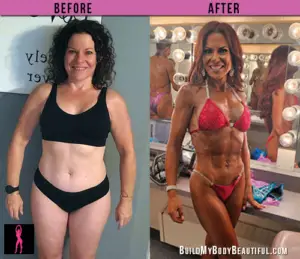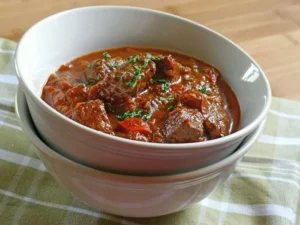Unlocking the potential of women’s muscle gain journey involves more than just time spent lifting weights; it’s deeply rooted in the basics of nutrition. Here’s how you can crack the diet code for muscle gain, transforming your body and enhancing your strength training results.
Understanding the Importance of Diet in Muscle Gain
It wasn’t until I hit a plateau on my fitness journey that I realized the importance of nutrition for muscle gain. And despite relentless hours at the gym, my muscle growth had seemingly stagnated. I turned to my personal trainer for advice, and he introduced me to the world of nutrition for muscle gain. “It’s not just about pumping iron,” he said, “Eating for muscle gain is equally important.” I was intrigued and decided to delve deeper into this dietary realm.
The Crucial Connection Between Protein and Muscle Gain
While protein intake for muscle building is well-regarded, it’s the balance and variety in your diet that truly amplifies your gains. Discover how to optimize your protein sources and integrate them effectively into your diet.
Debunking the Protein Myth
The belief that muscle gain is solely about increasing protein consumption is a misconception. Explore why a balanced diet, incorporating carbohydrates and muscle recovery, as well as healthy fats for strength training, is essential.
Protein Sources for Muscle Gain
Highlighting lean meats, plant-based proteins, and dairy as key elements in your muscle-building regimen offers a roadmap to enriching your diet with high-quality protein.
Carbohydrates: The Energy Providers
Carbohydrates play a pivotal role in your energy levels and recovery post-exercise. Integrating whole grains, fruits, and legumes into your meals fuels your workouts and aids in muscle repair.
Fats as Allies in Muscle Growth
Understanding the importance of healthy fats in hormone production and overall health can change your perspective on fats in your diet, highlighting sources like avocados and nuts as beneficial for muscle growth.
The Role of Micronutrients
Micronutrients, though needed in smaller quantities, support muscle recovery and growth. Emphasizing the importance of a varied diet rich in fruits, vegetables, and lean proteins can provide these essential vitamins and minerals.
Crafting Your Diet Plan for Muscle Gain
A well-rounded diet is the cornerstone of muscle development. This section breaks down the importance of meal timing for fitness, offering a sample day’s diet to kickstart your journey.
Meal Timing: Maximizing Muscle Growth
The strategic timing of meals, especially pre and post-workout meals, can significantly influence your muscle gain. Learn how to structure your eating schedule for optimal results.
Pre and Post-Workout Nutrition
- Pre-Workout: A mix of proteins and carbs fuel your session. Think chicken, rice, and veggies.
- Post-Workout: Replenish with a protein shake and banana to repair muscles and restore energy.
A Day’s Diet for Muscle Development
- Breakfast: Oatmeal, fruits, nuts, and a protein shake.
- Morning Snack: Greek yogurt with a banana.
- Lunch: Chicken, rice, and vegetables.
- Afternoon Snack: Protein bar and an apple.
- Dinner: Salmon, sweet potatoes, and salad.
FAQs on Nutrition and Muscle Gain
FAQs on Nutrition and Muscle Gain
Q: How much protein do I need daily to gain muscle?
A: The amount of protein needed can vary, but a general guideline for women looking to gain muscle is approximately 1.2 to 2.2 grams of protein per kilogram of body weight. This ensures your muscles have enough amino acids for repair and growth after workouts. Consider consulting with a nutritionist to tailor your protein intake to your specific needs and fitness goals.
Q: Can I gain muscle on a vegetarian or vegan diet?
A: Absolutely! Plant-based diets can support muscle gain effectively. Focus on including a variety of protein-rich plant foods such as lentils, chickpeas, tofu, tempeh, and quinoa. Additionally, plant-based protein powders can be a helpful supplement to ensure you’re meeting your protein requirements.
Q: What role do carbohydrates play in muscle gain?
A: Carbohydrates are crucial for muscle gain as they provide the energy needed for your workouts and help replenish glycogen stores in your muscles post-exercise. Aim for complex carbohydrates like whole grains, fruits, and vegetables to fuel your body and support recovery and growth.
Q: How important are fats in a muscle-gain diet?
A: Fats are essential for overall health and play a key role in hormone production, including hormones like testosterone, which are important for muscle growth. Focus on healthy fats found in avocados, nuts, seeds, and fatty fish. These fats can help optimize hormonal balance and support muscle gain.
Q: What micronutrients should I focus on for muscle gain?
A: While protein, carbs, and fats are key, don’t overlook micronutrients. Vitamins D and C, magnesium, and iron all play roles in muscle function and recovery. Ensure your diet includes a variety of fruits, vegetables, lean proteins, and whole grains to get these essential nutrients.
Q: How does meal timing affect muscle gain?
A: Meal timing can help optimize muscle repair and growth. Consuming protein and carbohydrates before and after your workouts can enhance muscle protein synthesis and replenish energy stores. Try to eat a balanced meal or snack 1-2 hours before exercising and within 30 minutes to an hour post-workout to maximize recovery and growth.
Q: Can I gain muscle without gaining fat?
A: Gaining muscle without adding fat requires a carefully balanced diet and a well-structured workout regimen. Focus on consuming enough calories to support muscle growth but not so many that you gain excess fat. Incorporating strength training into your routine while monitoring your calorie intake and macronutrient balance can help achieve lean muscle gains.
Q: Are supplements necessary for muscle gain?
A: While supplements can be helpful, they’re not necessary for everyone. A balanced diet can often provide all the nutrients needed for muscle gain. However, some individuals may benefit from supplements like protein powders, BCAAs, or creatine to help meet their nutritional needs, especially if they have higher requirements or dietary restrictions.
Q: I need help to gain muscle, how do I get started?
A. It’s always helpful to get advise or a custom plan from a personal trainer or a nutrition expert (make sure they have a good track record). If you feel ambitious, go at it on your own and learn as much as you can. Sites like Bodybuilding.com and T-Nation are great resources to learn from





